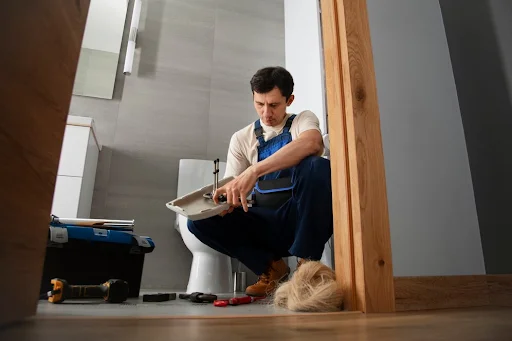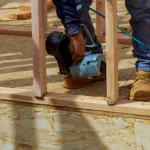If you’re a homeowner, you know that plumbing emergencies never come at a convenient time. Whether it’s a burst pipe on a freezing winter night or a clogged toilet just before guests arrive, these situations can be stressful and messy. I’ve been there more times than I’d like to admit!
Over the years, I’ve learned the hard way how to handle—and prevent—common plumbing disasters. So, I’m sharing my top seven plumbing emergencies that every homeowner should be ready for, along with practical tips to deal with them.
And yes, if all else fails, calling a trusted plumber wheat ridge colorado, can save the day.
1. Burst Pipes
A burst pipe is every homeowner’s nightmare.
It usually happens during the winter when freezing temperatures cause water to expand, breaking the pipe. I learned this the hard way one particularly cold January when water started gushing out of a pipe in my basement.
How to Handle It:
- Shut off the water immediately. Find your main water valve and turn it off to stop the flow.
- Drain the pipes. Turn on all your faucets to release any remaining water.
- Call a plumber. This isn’t a DIY fix, so get professional help to replace the damaged pipe.
Pro Tip:
To prevent burst pipes, insulate your pipes before winter and keep a trickle of water running during freezing nights.
2. Clogged Toilets
There’s nothing worse than a clogged toilet, especially if you only have one bathroom. I remember the panic I felt when my toddler decided to flush a toy down the toilet.
How to Handle It:
- Use a plunger. Create a good seal and push gently at first, then more firmly to dislodge the blockage.
- Try a toilet auger. If the plunger doesn’t work, this tool can help reach deeper clogs.
- Call a plumber. If the clog persists, a professional can handle it without damaging your pipes.
3. Leaky Faucets
A dripping faucet might not seem like an emergency, but it can waste gallons of water and drive up your water bill. Plus, that constant dripping sound is enough to drive anyone crazy!
How to Handle It:
- Turn off the water supply. Locate the shut-off valve under the sink.
- Replace the washer. Most drips are caused by a worn-out washer or O-ring.
- Call a plumber. If the problem persists, you may need expert help.
Pro Tip:
Regular maintenance can prevent leaky faucets. Check for wear and tear and replace parts as needed.
4. Water Heater Issues
There’s nothing worse than stepping into a freezing shower because your water heater isn’t working. I experienced this one morning when I had no hot water and a tank that was leaking.
How to Handle It:
- Turn off the water heater. If it’s leaking, shut off the water supply and power.
- Check the thermostat. Sometimes, a simple adjustment can solve the problem.
- Flush the tank. Sediment buildup can cause issues, so draining the tank might help.
- Call a professional. If you’re unsure, a plumber can diagnose and fix the problem.
5. Sewer Line Backup
This is a plumbing emergency no one wants to deal with. A sewer backup can cause foul odors, slow drains, and even sewage coming up through your pipes.
How to Handle It:
- Stop using water. Avoid flushing toilets or running faucets to prevent more waste from entering the line.
- Check for blockages. Look for clogs in your drains, but avoid using chemical cleaners.
- Call a plumber immediately. A professional can inspect the line and clear any obstructions.
Pro Tip:
Have your sewer line inspected regularly, especially if you live in an older home.
6. Low Water Pressure
Low water pressure can make daily tasks like washing dishes or taking a shower incredibly frustrating. I once dealt with low pressure for weeks before realizing it was a clogged aerator.
How to Handle It:
- Check the aerator. Unscrew the faucet head and clean out any debris.
- Inspect for leaks. Low pressure can be caused by hidden leaks in your plumbing system.
- Call a plumber. If the problem persists, there may be an issue with your water supply or pipes.
Pro Tip:
Regularly clean your faucet heads and showerheads to prevent buildup.
7. Sump Pump Failure
If you have a basement, your sump pump is your first line of defense against flooding. I learned just how important it was when my pump failed during a heavy rainstorm, leaving me with a flooded basement.
How to Handle It:
- Check the power. Make sure the pump is plugged in and the circuit breaker hasn’t tripped.
- Inspect for clogs. Clear any debris from the pump or discharge line.
- Call a professional. If the pump still isn’t working, you may need a replacement.
Pro Tip:
Test your sump pump regularly by pouring water into the pit to ensure it activates.
Bonus Tips: How to Be Prepared for Plumbing Emergencies
Over time, I’ve learned that being prepared can make all the difference when plumbing emergencies strike. Here are a few things every homeowner should do:
- Know where your main water shut-off valve is. This is the first thing you’ll need to locate in an emergency.
- Keep basic tools on hand. A plunger, wrench, and drain snake can help you tackle minor issues.
- Have a trusted plumber’s number saved. When disaster strikes, you don’t want to waste time searching for help. (If you’re in the area, I highly recommend a reliable plumber in Wheat Ridge, Colorado!)
- Schedule regular maintenance. A little upkeep can prevent big problems down the road.
Final Thoughts
Plumbing emergencies can be stressful, but with a little preparation and the right knowledge, you can handle them like a pro—or at least minimize the damage until help arrives.
Remember, it’s always better to prevent problems before they happen. Regular maintenance, mindful water use, and keeping your plumbing system in good shape will go a long way in avoiding emergencies.
And if you ever find yourself in over your head, don’t hesitate to call a professional. A reliable plumber has the experience and tools to get the job done right.
Stay prepared, and may your pipes stay problem-free!







